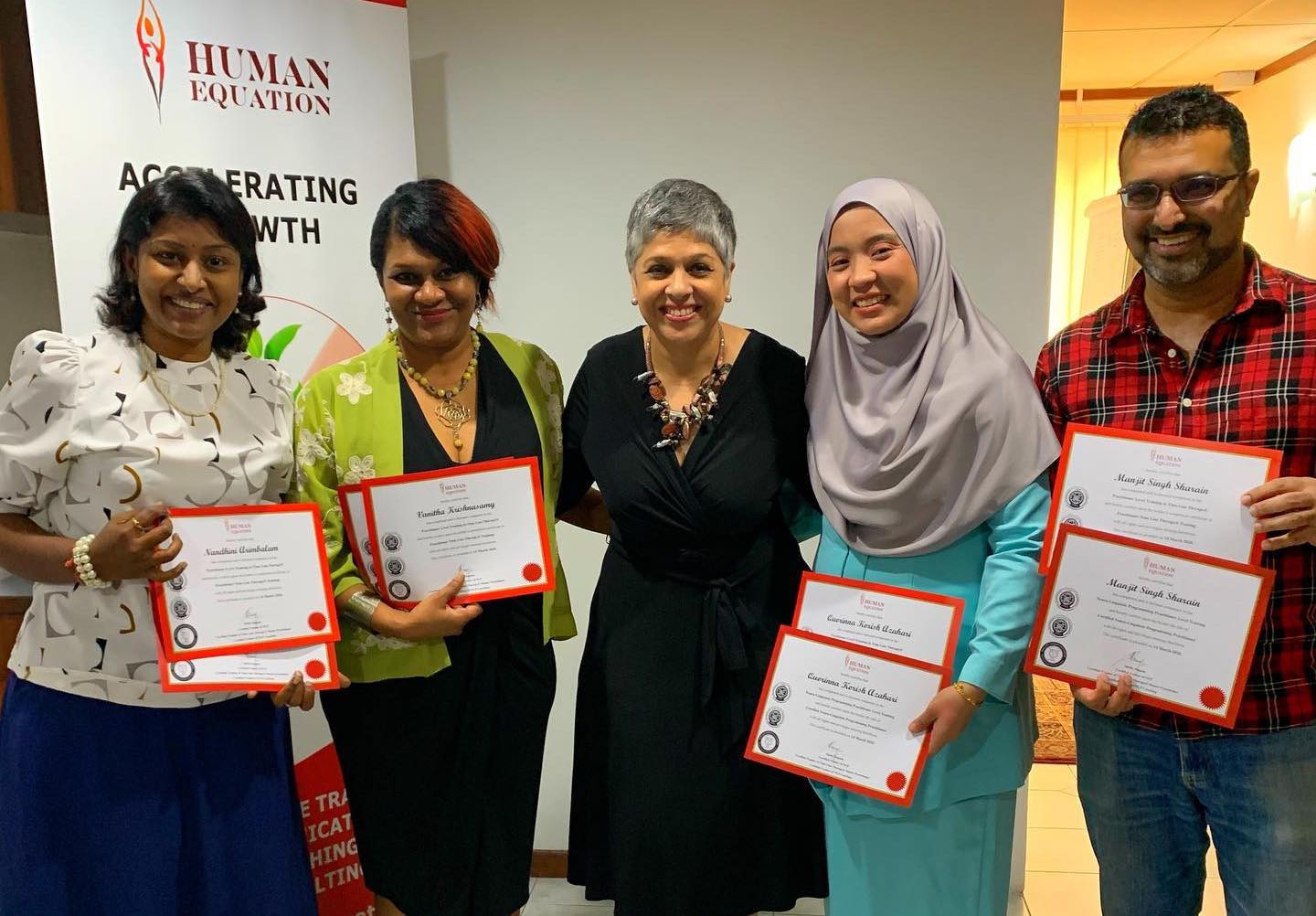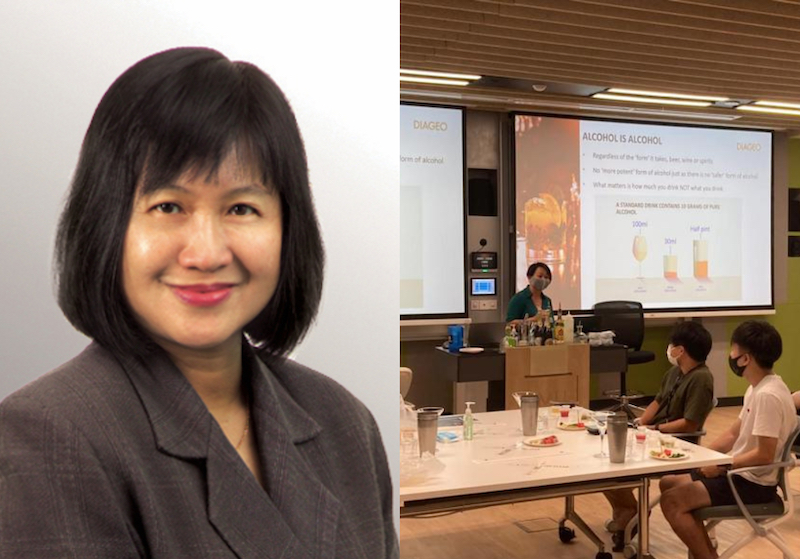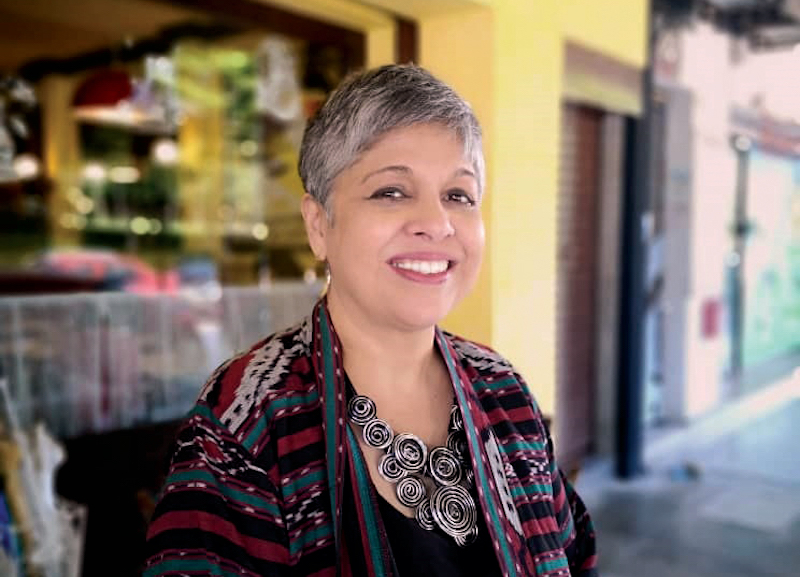
Sheila Singam (middle) is the founder of training consultancy Human Equation (Photo: Human Equation)
Although we may never go back to life as it once was, the present lockdown will not last forever and with vaccination rates in Malaysia at an all-time high, the situation is set to improve soon enough. But are we actually ready for a post-pandemic existence, both in our personal and professional lives? The last year and a half have been challenging on many levels, and it may do us all some good to get assistance with readjusting. We speak to four professionals on how an executive or life coach can help us adapt to our new normal, and help the people around us do so as well.
Chevonne Hassan
Transformational coach
A professional coach can help unlock an individual's latent potential, guiding them on their journey to becoming the happiest, healthiest version of themself. In life, we all experience insecurity, fear, anger, pain and loss, especially during the pandemic when feelings of pressure, isolation and loneliness are exacerbated, leading to emotional stress and even depression.
Whether these affect our private or work relationships, it is important to be acknowledged, feel heard, empathised with, and understood. A professional coach facilitates conversations of this nature, always while providing neutral, safe spaces for open dialogue exchanges. A professional coach also engages with you through the challenges that everyday life presents, with a non-judgemental ear, while supporting and guiding you through the process of exploring healthy solutions in the areas that matter most to you.
For organisations, your people are your most valuable resource. Listening to them as well as trusting and empowering them to achieve peak performance not only creates an organisation that is an employer of choice, but is also the efficient approach to building a positive, productive and profitable business for sustained, long-term growth.
See her Instagram profile here.
Kwek Kian Lee
Executive coach at Learning@Vantage
Two years ago, the word pandemic was not in our vocabulary. For now, there seems to be no end to it. However, we must take a leap of faith that, for everything that happens, there will be an end for a new beginning to take root. [A] post-pandemic [time] will be here, we must believe that. How must we adjust? How do we react? How do we live? For the coaching profession, this is the time when coaches are more relevant to society than ever before. Why? Because as coaches, we have been through this journey together with all of you.
We hear and understand you better than anyone else. This is because we are skilled at listening to the unspoken and would be able to lend you the support you need to move forward, both in your professional and personal lives. How? Merely by listening to your challenges and by sharing with you how we have handled crisis after crisis on our end.
As one of my coachees mentioned to me the other day, “Wow, Coach … thanks for sharing! It makes me feel more human than ever before.” Reaching out to an individual is not about making judgements on their actions, but being there for them when they need someone to be there with them … all the way. That is how a coach can help, by showing humanity to anyone who reaches out to him/her.
Sheila Singam
Founder of Human Equation
When we go through tough times, it almost always helps to talk to someone about it — first, to “download” and second, to gain another perspective on how to handle the situation. So why not talk to a friend? Why pay to have a coach listen? Well, coaches do more than just listen and make the right empathic noises.
First of all, they are trained to listen out for words and phrases that give an indication of your thought processes, beliefs and model of the world. It can give them insight into where you are coming from and how that has shaped the internal “programmes” upon which you operate, which produce the results (or non-results!) you are getting.
Next, the coach can apply tools to help you get rid of the internal programmes that are not working out for you and replace them with new ones that can help you, not just to cope better, but to actually find the positive learnings in what is happening and to help you live your life at Cause instead of being the Effect of circumstances. The coach can help you install new, empowering beliefs to help you thrive in tough times and to find new opportunities, even in a pandemic. On a personal note, I avail myself of other coaches' services for perspectives that help me see things differently.
Timothy Tan
Chief learning officer at Learning@Vantage
Partnering with a professional coach will evoke awareness or insights in terms of your way of thinking, values, needs, wants and beliefs that can change your life, setting you on a path to greater personal and professional fulfilment. Through coaching, we will work with the client to:
- Explore and deep dive in a thought-provoking and creative process that inspires them to maximise their personal and professional potential.
- Unlock previously untapped sources of imagination, productivity and leadership.
- Discover or uncover what their potential looks like, and enable them to work towards it.
- Identify the root cause that triggers their concerns and how these affect them.
- Be aware of their self-limiting beliefs, thought patterns, behaviours, tendencies and perceptions that shape their habits and actions. Self-awareness is the beginning of all change.
- Be present, mindful and calm in every challenging situation/scenario so that they do not feel overwhelmed.
- Obtain mastery over their emotions so that they can “think, feel and act” when choosing the best options to achieve the outcomes they want.
- Direct or redirect their energy towards the goals that matter to them most and not be sidetracked or trapped in circumstances/situations that will wear them down or paralyse them.
- Develop the agility and resilience needed to withstand the velocity of change that is not slowing down and cope with the post-pandemic future that seems uncertain.
This article first appeared on Aug 9, 2021 in The Edge Malaysia.






